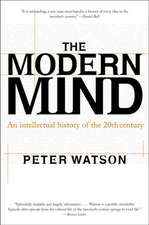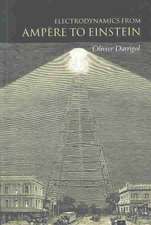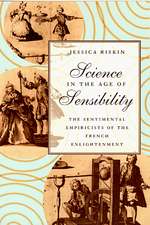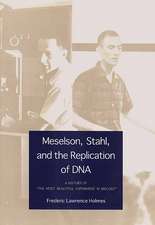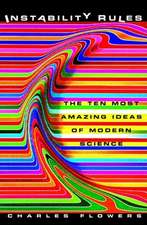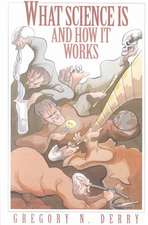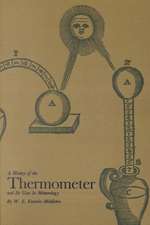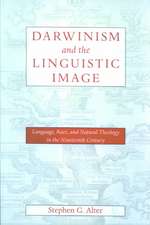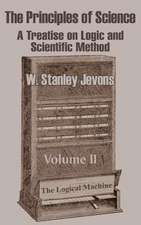Understanding Inconsistent Science
Autor Peter Vickersen Limba Engleză Hardback – 22 aug 2013
Preț: 517.55 lei
Preț vechi: 740.44 lei
-30% Nou
Puncte Express: 776
Preț estimativ în valută:
99.05€ • 103.02$ • 81.77£
99.05€ • 103.02$ • 81.77£
Carte disponibilă
Livrare economică 13-19 martie
Preluare comenzi: 021 569.72.76
Specificații
ISBN-13: 9780199692026
ISBN-10: 0199692025
Pagini: 288
Dimensiuni: 177 x 238 x 23 mm
Greutate: 0.57 kg
Editura: OUP OXFORD
Colecția OUP Oxford
Locul publicării:Oxford, United Kingdom
ISBN-10: 0199692025
Pagini: 288
Dimensiuni: 177 x 238 x 23 mm
Greutate: 0.57 kg
Editura: OUP OXFORD
Colecția OUP Oxford
Locul publicării:Oxford, United Kingdom
Recenzii
[T]he book is a remarkable achievement both in its breadth and in its depth. Vickers offers by some margin the most comprehensive and detailed discussion of inconsistency in physics of which I am aware ... [T]his is an important book.
I strongly encourage and see great potential for this work and, given the high standards of his current publications, we can all look forward to seeing what Vickers and his colleagues come up with next.
[H]is case studies provide good material for beginning to evaluate his theory eliminativism, which I find the most interesting theme in the book. It is worth emphasizing that the book is very clearly written and easy to read, without too much unnecessary formalism or jargon. I expect that anyone interested in the philosophy of science would profit from reading it.
Vickers' book is a paradigm of philosophical engagement with issues that are, or ought to be, of real concern to working scientists and to scientically engaged laypersons.
Given the historical rigour with which his case studies are examined, as well as the methodological novelty of his approach, Vickers's work is certain to trigger a number of debates in the philosophical community, starting from those on historical details of the presented episodes, to discussions on formal logic and its application to scientific reasoning. For these reasons alone it is safe to say that Vickers's book is from now on a necessary reference for any scholar of these problem fields. Moreover, given the complexity of the topic and its relevance for other philosophical disciplines, the book is a highly welcome contribution not only to the literature on inconsistencies in science, but to logic, epistemology and methodology of science in general
Understanding Inconsistent Science is a necessary inquiry into allegedly inconsistent science, which Vickers has executed with care and caution, and which has earned him the honourable title: Slayer of the iMongers
The method is original and convincing, and the case studies well researched and compelling ... overall then, this is a very creative text, and useful for both those directly interested in the inconsistency debates and also those looking for a novel approach to solving other problems in philosophy of science
The cases themselves are fascinating, and Vickers's treatment is systematic, detailed, and rigorous ... Understanding Inconsistent Science [is] a book that I warmly recommend
Vickers's book provides a much-needed organization and clarification of the issues at hand-what we mean by claiming a scientific theory to be contradictory, and which sorts of cases and examples best illustrate these issues-and is an important prolegomenon to any future work in this area.
Peter Vickers's monograph stands out as a very serious piece of scholarship in historically- and scientifically-informed philosophy of science. It is to be strongly recommended to both philosophers (of science) and reflectively inclined scientists, especially physicists and mathematicians.
Vicker's treatment of the examples is detailed and well-referenced, while also being admirably accessible, even for an audience that lacks a full grasp of the science and mathematics involved ... the book makes a substantial contribution to the literature: gathering these eight examples together in a well-referenced discussion provides an excellent starting point for anyone interested in thinking about inconsistency in science.
I strongly encourage and see great potential for this work and, given the high standards of his current publications, we can all look forward to seeing what Vickers and his colleagues come up with next.
[H]is case studies provide good material for beginning to evaluate his theory eliminativism, which I find the most interesting theme in the book. It is worth emphasizing that the book is very clearly written and easy to read, without too much unnecessary formalism or jargon. I expect that anyone interested in the philosophy of science would profit from reading it.
Vickers' book is a paradigm of philosophical engagement with issues that are, or ought to be, of real concern to working scientists and to scientically engaged laypersons.
Given the historical rigour with which his case studies are examined, as well as the methodological novelty of his approach, Vickers's work is certain to trigger a number of debates in the philosophical community, starting from those on historical details of the presented episodes, to discussions on formal logic and its application to scientific reasoning. For these reasons alone it is safe to say that Vickers's book is from now on a necessary reference for any scholar of these problem fields. Moreover, given the complexity of the topic and its relevance for other philosophical disciplines, the book is a highly welcome contribution not only to the literature on inconsistencies in science, but to logic, epistemology and methodology of science in general
Understanding Inconsistent Science is a necessary inquiry into allegedly inconsistent science, which Vickers has executed with care and caution, and which has earned him the honourable title: Slayer of the iMongers
The method is original and convincing, and the case studies well researched and compelling ... overall then, this is a very creative text, and useful for both those directly interested in the inconsistency debates and also those looking for a novel approach to solving other problems in philosophy of science
The cases themselves are fascinating, and Vickers's treatment is systematic, detailed, and rigorous ... Understanding Inconsistent Science [is] a book that I warmly recommend
Vickers's book provides a much-needed organization and clarification of the issues at hand-what we mean by claiming a scientific theory to be contradictory, and which sorts of cases and examples best illustrate these issues-and is an important prolegomenon to any future work in this area.
Peter Vickers's monograph stands out as a very serious piece of scholarship in historically- and scientifically-informed philosophy of science. It is to be strongly recommended to both philosophers (of science) and reflectively inclined scientists, especially physicists and mathematicians.
Vicker's treatment of the examples is detailed and well-referenced, while also being admirably accessible, even for an audience that lacks a full grasp of the science and mathematics involved ... the book makes a substantial contribution to the literature: gathering these eight examples together in a well-referenced discussion provides an excellent starting point for anyone interested in thinking about inconsistency in science.
Notă biografică
Peter Vickers completed his undergraduate BSc in Mathematics and Philosophy at the University of York in 2003. This was followed by an MA in History and Philosophy of Science at the University of Leeds, completed in 2005, and a PhD in the history and philosophy of science, also at the University of Leeds in 2009. Following a year teaching at Leeds, Vickers spent a year as a Postdoctoral Fellow at the Center for Philosophy of Science at the University of Pittsburgh, before returning to the UK in 2011 as a Lecturer in Philosophy at Durham University.

